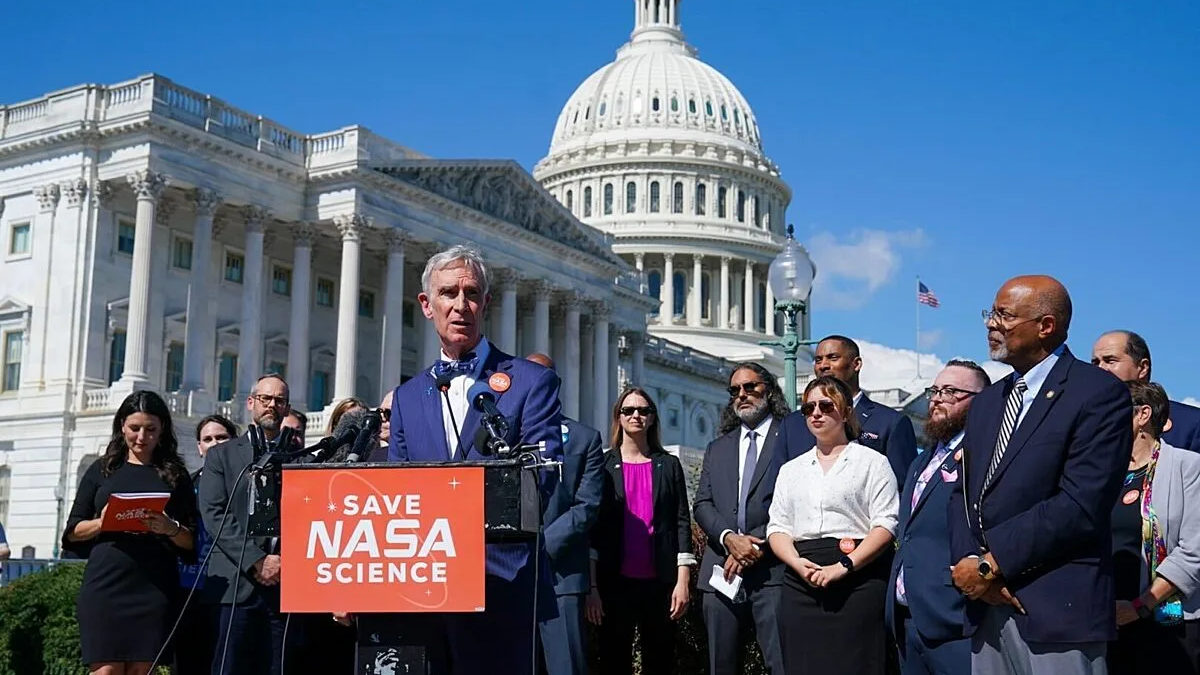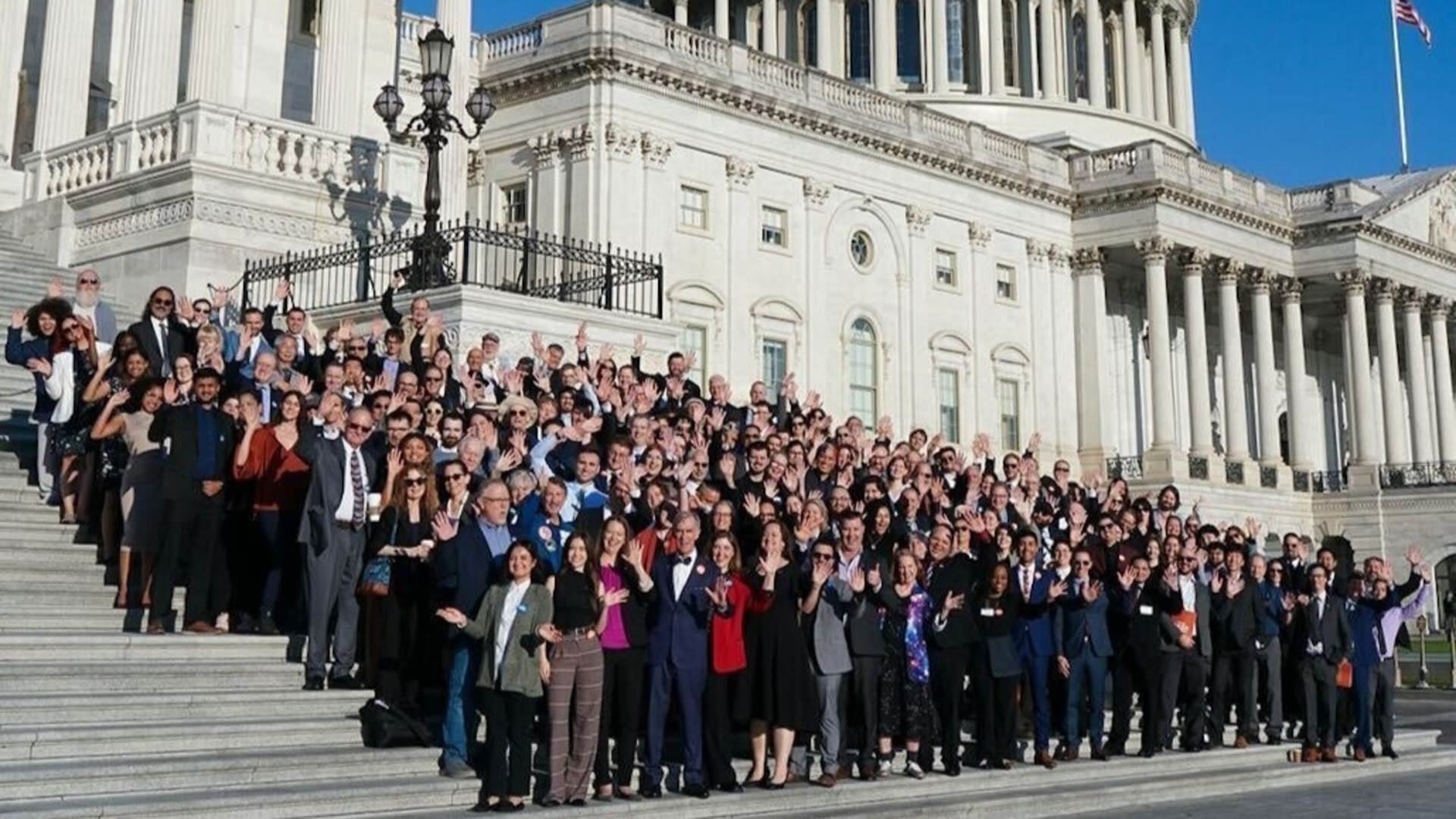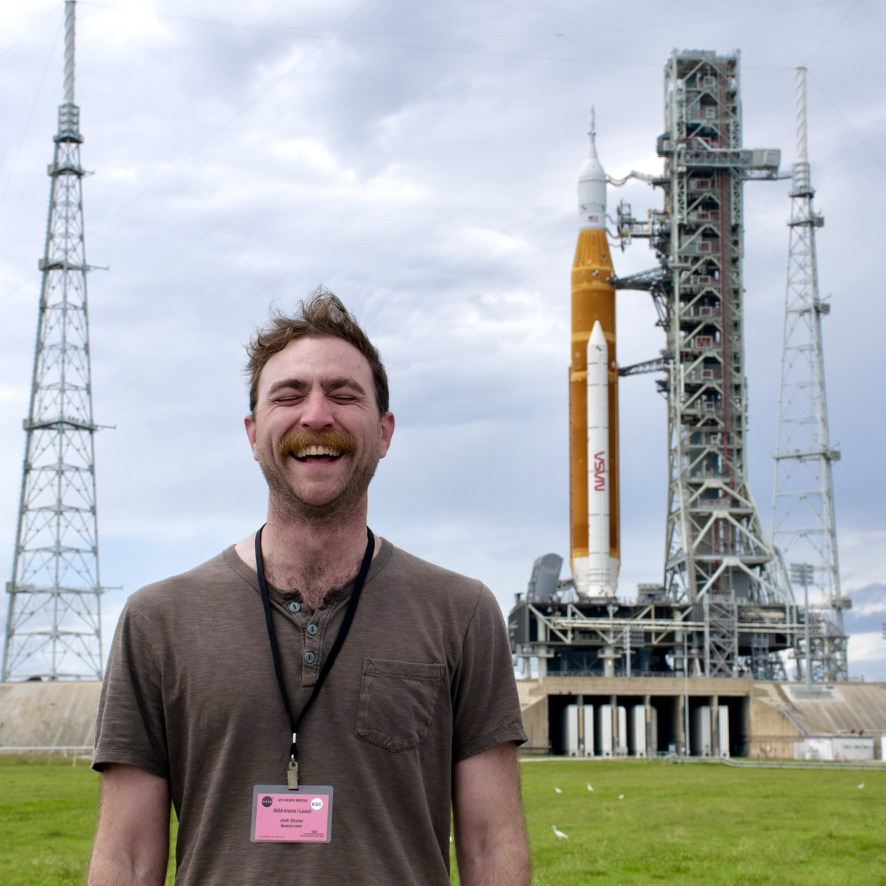Bill Nye and the Planetary Society hold 'Save NASA Science' day of action on Capitol Hill
"When it comes to exploration, there is no private option."

Breaking space news, the latest updates on rocket launches, skywatching events and more!
You are now subscribed
Your newsletter sign-up was successful
Want to add more newsletters?

Delivered daily
Daily Newsletter
Breaking space news, the latest updates on rocket launches, skywatching events and more!

Once a month
Watch This Space
Sign up to our monthly entertainment newsletter to keep up with all our coverage of the latest sci-fi and space movies, tv shows, games and books.

Once a week
Night Sky This Week
Discover this week's must-see night sky events, moon phases, and stunning astrophotos. Sign up for our skywatching newsletter and explore the universe with us!

Twice a month
Strange New Words
Space.com's Sci-Fi Reader's Club. Read a sci-fi short story every month and join a virtual community of fellow science fiction fans!
The government may be shut down, but space exploration advocates are still pleading NASA's case on Capitol Hill.
On Monday (Oct. 6), the nonprofit Planetary Society held a "day of action" to urge Congress to restore NASA's science funding, which was slashed nearly in half in the White House's proposed 2026 federal budget.
Planetary Society CEO Bill Nye spoke at a "Save NASA Science" press conference on the steps of the U.S. Capitol building in Washington, D.C. on Wednesday. He laid out the impact to the space agency and the broader U.S. science community should President Donald Trump's fiscal year 2026 (FY26) presidential budget proposal (PBR) turn into law.
"These proposed cuts would force the premature termination of dozens of missions — fully functioning spacecraft summarily turned off, development work on virtually every future science mission summarily halted," Nye said at the event, which featured over 300 supporters and 20 national organizations.
The PBR, which was released in May, cut NASA's funding by the largest amount in the agency's history. The White House's proposed plan slashes NASA's overall budget by 24%, with a 47% reduction to science programs. Since then, the Planetary Society has been trying to raise public awareness and work with Congress to restore NASA's budget in the appropriations bill.
"When it comes to exploration, there is no private option," Nye said Monday. "NASA Science is a bargain. For every dollar spent, at least three come back into the economy. Last year, NASA's investment in science generated more than $20 billion of economic growth and supported over 80,000 jobs in all 50 states."
Nye argued that science and exploration aren't just suggestions — they're part of the foundation of the country. "Article One, clause eight of the US Constitution recommends to Congress that they promote the progress of science and useful arts," he said. "It's in the constitution."
Breaking space news, the latest updates on rocket launches, skywatching events and more!

For its part, Congress has signaled for months an indication that it plans to restore NASA funding to around FY25 levels, but an inability to agree on other parts of the final budget appropriations bill has halted progress and shut down the U.S. government.
Casey Dreier, the Planetary Society’s chief of space policy, said on Monday that both chambers of Congress "broadly rejected" the administration’s proposal. He and Nye were joined by Democratic Rep. Glenn Ivey of Maryland's fourth district, which includes NASA's Goddard Space Flight Center, who said the administration’s approach has been "awful for our region and for the nation."
It's "critical" that the Senate’s budget plan "make[s] sure that the United States continues maximum funding," Ivey told reporters. "The House and the Senate, we're moving in a much better direction than the White House."
American Astronomical Society President-elect Marcel Agüeros added his voice of support to those gathered at the Capitol steps. He pointed to NASA's Hubble, Chandra, Kepler and TESS space telescopes as transformative missions altering humanity's understanding of the universe, and worried about what the cuts would mean for future missions. He used the Nancy Grace Roman Space telescope, which is currently under development, as an example.
"The Roman Space Telescope is the next entry in this list of missions pushing the limits of discovery. Roman will not only revolutionize our understanding of dark matter and dark energy, it is expected to add 100,000 planets to our census. Roman is on budget and ahead of schedule. Under-investing in it today would not only result in a major scientific loss, it would be a major waste of taxpayer dollars," Agüeros said.
Monday's event took place during the first full week of the government shutdown, with over 15,000 NASA employees furloughed and science operations largely frozen. Congress will likely revisit NASA appropriations once the shutdown ends, but there is no indication yet of when that will be. In the coming weeks, the Planetary Society and its supporters plan to keep pressing their message to lawmakers.
Speaking to the crowd, Nye quoted former president Teddy Rosevelt, saying, "We dare mighty things. Cuts to NASA science will not make us stronger. Investing in it will."

Josh Dinner is the Staff Writer for Spaceflight at Space.com. He is a writer and photographer with a passion for science and space exploration, and has been working the space beat since 2016. Josh has covered the evolution of NASA's commercial spaceflight partnerships and crewed missions from the Space Coast, as well as NASA science missions and more. He also enjoys building 1:144-scale model rockets and human-flown spacecraft. Find some of Josh's launch photography on Instagram and his website, and follow him on X, where he mostly posts in haiku.
You must confirm your public display name before commenting
Please logout and then login again, you will then be prompted to enter your display name.

